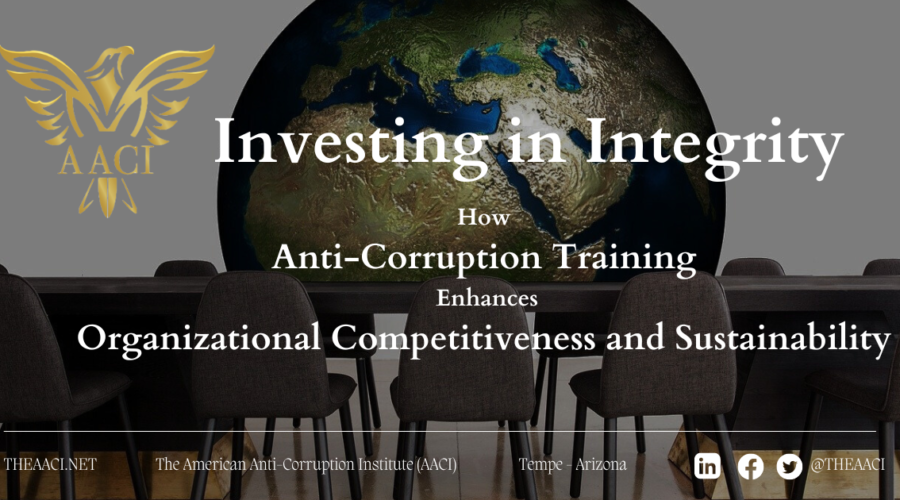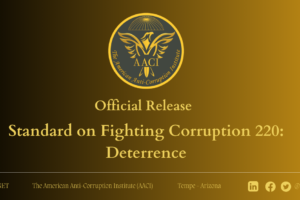March 14, 2024
In today’s increasingly complex business landscape, the importance of anti-corruption training for top and middle management cannot be overstated. These training programs serve as a fundamental pillar in cultivating integrity, fostering accountability, and promoting effective internal control [1] and governance [3] within organizations. By instilling a culture of ethical conduct throughout the organization, such training initiatives have a profound impact on the success of the organization and the performance of individual managers [4].
At the core of any anti-corruption training program is the emphasis on integrity. Managers who embody integrity set a powerful example for their teams, influencing employees to adhere to high ethical standards in their daily operations. By prioritizing integrity, organizations can build trust among stakeholders, enhance their reputation, and mitigate the risks associated with corrupt practices.
Furthermore, anti-corruption training equips managers with the knowledge and skills necessary to implement effective internal control. Internal control ensures transparency, traceability, and accountability in organizational processes, safeguarding against fraud and misconduct. Effective internal control enables the organization’s management and those charged with governance to have reliable financial and non-financial reporting, efficient and effective operations, and compliance with rules, laws, and regulations.
Effective governance is another critical aspect addressed in anti-corruption training programs. Managers learn about the importance of establishing clear accountability structures, adhering to regulatory requirements, and upholding the organization’s bylaws. By promoting transparency and accountability in governance practices, organizations can demonstrate their commitment to ethical conduct and earn the trust of stakeholders.
A cornerstone of anti-corruption training is the establishment of a zero-tolerance policy towards bribery and kickbacks. By publicly communicating this policy to all stakeholders, including vendors, organizations send a clear message that corrupt practices will not be tolerated. This not only deters individuals from engaging in unethical behavior but also helps in building a culture of transparency and fairness.
In conclusion, anti-corruption training is not merely an expense but rather an investment in the organization’s human capital. By providing managers with the tools and knowledge to identify, prevent, and address corrupt practices, organizations can enhance their competitiveness, safeguard their reputation, and ensure long-term success. Ultimately, by nurturing a culture of integrity and ethical conduct, organizations can create a more sustainable and prosperous future for themselves and their stakeholders.
Sources and References
[1] We adopt and use Internal Control as developed and adopted by COSO.org. Read more at https://www.coso.org/guidance-on-ic, Accessed on March 14, 2024
[2] Effective Internal Control is a principle of fighting corruption at The American Anti-Corruption Institute (AACI), Accessed on March 14, 2024
[3] Effective and good governance is a principle of fighting corruption at The American Anti-Corruption Institute (AACI), Accessed on March 14, 2024
[4] Anti-corruption training for decision makers is an implementation of a principle of fighting corruption titled,” investment in anti-corruption.” It is one of the ten principles of fighting corruption promulgated by The American Anti-Corruption Institute (AACI). Read more at https://www.theaaci.net/Principles-of-Fighting-Corruption
[5] Image by Gerd Altmann from Pixabay











































